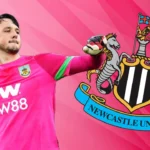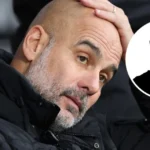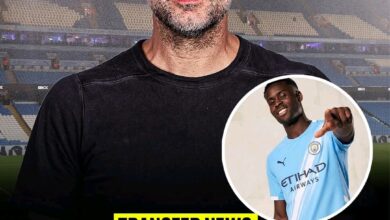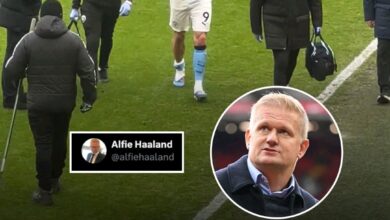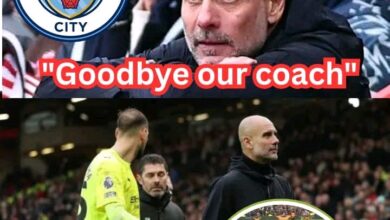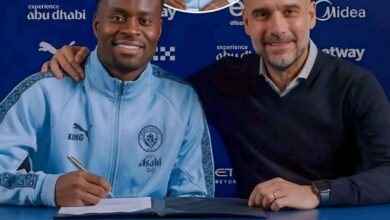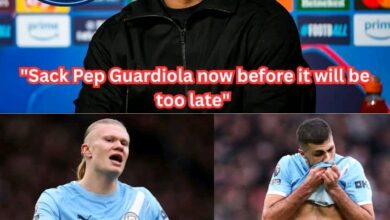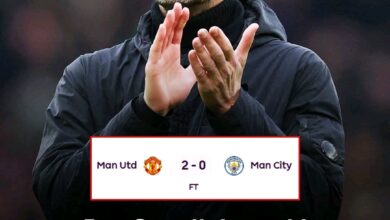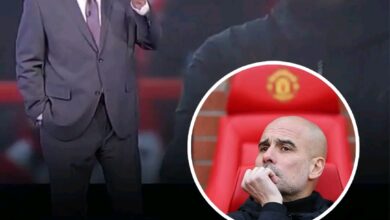The Uncertain Future of James Trafford: Manchester City’s Dilemma Over Promising Young Goalkeeper
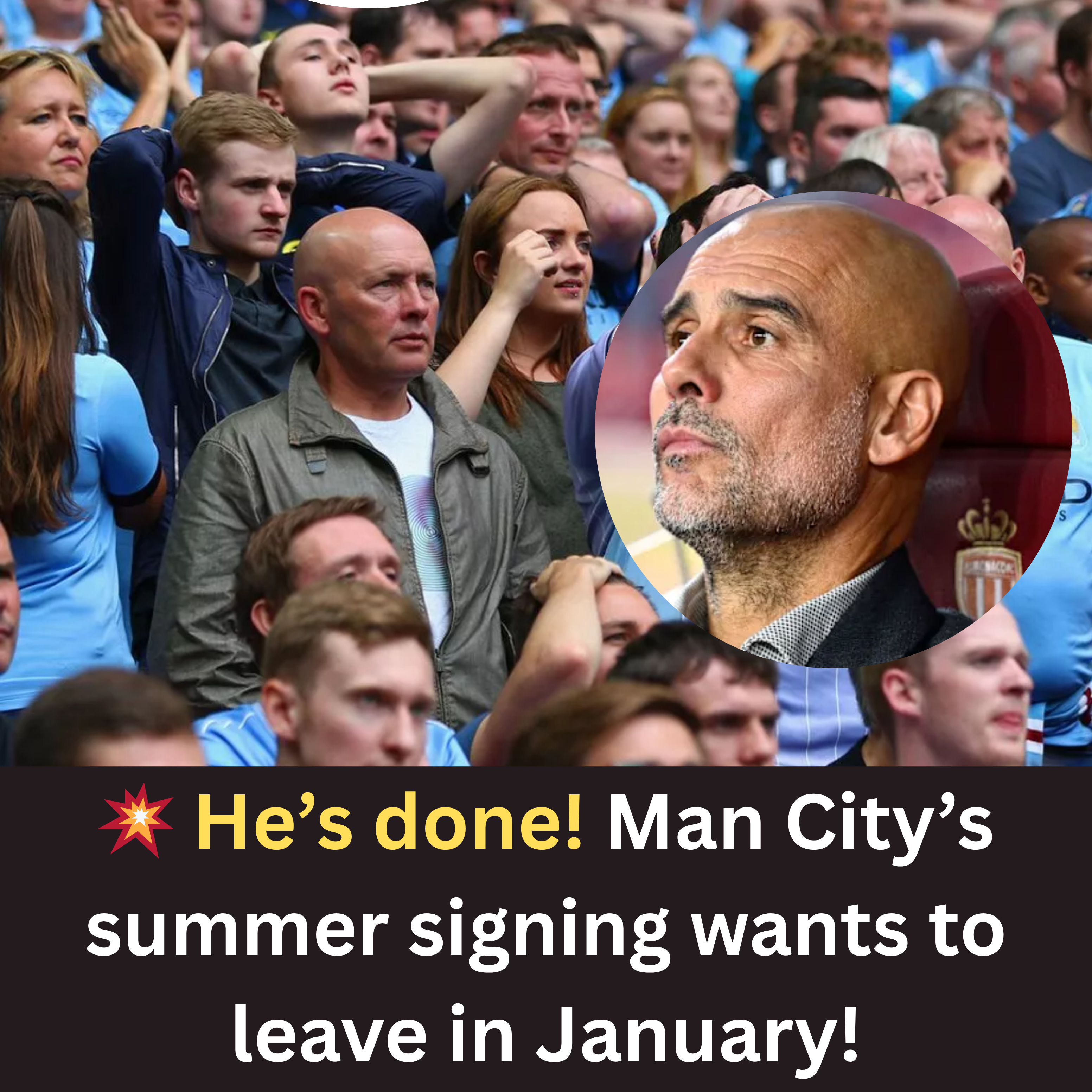
In the high-stakes world of elite football, where multi-million pound transfers are routine and competition for places is unrelenting, the story of James Trafford at Manchester City serves as a compelling case study in the complexities of squad management and player development. The 23-year-old goalkeeper, who arrived at the Etihad Stadium with considerable fanfare and expectations during the summer transfer window, now finds himself in a precarious position that raises fundamental questions about his future at one of Europe’s most successful clubs.
The Summer That Promised So Much
When Manchester City secured the services of James Trafford from Burnley in the summer transfer window, the move was heralded as a shrewd piece of business by the reigning Premier League champions. Trafford, widely regarded as one of English football’s most exciting young goalkeeping prospects, seemed destined for greatness at the Etihad. His performances in the Championship had caught the attention of numerous top-flight clubs, but it was City who ultimately won the race for his signature.
The transfer represented more than just another addition to Pep Guardiola’s squad; it was viewed as a strategic investment in the club’s future. At 23 years old, Trafford possessed the perfect blend of youth, potential, and experience. His technical abilities, command of his penalty area, and distribution skills aligned perfectly with the demands of Guardiola’s possession-based philosophy. City envisioned him as the ideal candidate to eventually succeed Ederson, the Brazilian goalkeeper who had been instrumental in the club’s domestic and European triumphs.
The circumstances surrounding Trafford’s arrival seemed auspicious. Manchester City’s goalkeeping department, while boasting quality in Ederson, lacked depth in terms of credible long-term succession planning. The club’s hierarchy identified Trafford as someone who could initially serve as a capable backup while gradually developing into a first-choice option. His signing was meant to provide City with security in a position where injuries or loss of form could prove catastrophic to their ambitions across multiple competitions.
However, football has a habit of producing unexpected plot twists, and Trafford’s Manchester City career would take an unforeseen turn before it had truly begun.
The Donnarumma Factor: A Game-Changing Development
The trajectory of James Trafford’s Manchester City career changed dramatically in August when the club pulled off one of the summer’s most stunning transfers: the acquisition of Gianluigi Donnarumma from Paris Saint-Germain. The Italian international, a European Championship winner and widely considered one of the world’s elite goalkeepers, arrived at the Etihad with a reputation that immediately altered the pecking order.
Donnarumma’s credentials were impeccable. At just 26 years old, he had already accumulated vast experience at the highest level, featuring regularly in Serie A for AC Milan before his controversial move to PSG. His performances for Italy at Euro 2020, where he was named Player of the Tournament, had cemented his status as a world-class operator. His presence, stature, and proven ability at the pinnacle of European football made him an irresistible option for Guardiola.
The ramifications for Trafford were immediate and profound. What had seemed like a promising opportunity to compete for minutes and gradually establish himself suddenly transformed into a much steeper challenge. Donnarumma didn’t arrive as another squad option; he came as the unequivocal first choice, effectively leapfrogging Trafford in the hierarchy before the young Englishman had kicked a competitive ball for his new club.
This development represented a significant shift in Trafford’s circumstances. The pathway to first-team football, which had appeared relatively clear upon his arrival, was now blocked by one of Europe’s finest goalkeepers in his prime. The reality of professional football’s ruthless nature became starkly apparent: reputations, transfer fees, and promises mean little when a superior option becomes available.
The Harsh Reality of Limited Opportunities
Since Donnarumma’s arrival and subsequent establishment as Manchester City’s first-choice goalkeeper, James Trafford’s experience at the club has been characterized by frustration and limited opportunities. The statistics paint a sobering picture of his situation: he has yet to feature in a single Premier League match for City. His involvement has been restricted exclusively to cup competitions and training sessions, a far cry from the regular football that any ambitious young goalkeeper needs to develop his craft.
The psychological impact of such circumstances on a player of Trafford’s age and ambitions cannot be understated. At 23, he finds himself in what should be a crucial developmental phase of his career. Goalkeepers, unlike outfield players, require match minutes to hone their decision-making, command of their area, and game management skills. Training sessions, no matter how intense or competitive, cannot replicate the pressure, unpredictability, and learning opportunities that come with competitive fixtures.
Manchester City’s domestic cup competitions offer some respite, but these opportunities are infrequent and often come against lower-level opposition. While valuable in maintaining match sharpness and confidence, they don’t provide the consistent, high-pressure environment that Premier League or Champions League fixtures deliver. For a goalkeeper with aspirations of becoming England’s long-term number one, this lack of elite-level exposure represents a significant obstacle to his development trajectory.
The training ground presents its own challenges. While working daily alongside world-class players and under one of football’s most innovative coaches offers immense learning potential, there’s no substitute for the real thing. Trafford can study Donnarumma’s preparations, absorb Guardiola’s tactical instructions, and excel in practice scenarios, but without regular competitive football, there’s a danger of stagnation rather than progression.
Manchester City’s Strategic Deliberation
According to sources close to the club, Manchester City are adopting a measured, thoughtful approach to determining James Trafford’s long-term future. This cautious strategy reflects the club’s broader philosophy of player management and their recognition of Trafford’s undeniable potential, despite his current predicament.
The club’s hierarchy remains convinced that Trafford possesses the technical skills, mental fortitude, and raw ability to become an outstanding goalkeeper. They haven’t written him off as a failed signing or a casualty of changed circumstances. Instead, they view his situation as one requiring careful consideration of multiple factors: his development needs, the club’s competitive requirements, and the various pathways available to maximize his potential while protecting their investment.
City’s decision-makers are acutely aware that mishandling Trafford’s situation could have long-term consequences. The graveyard of football history is littered with promising young players whose careers stalled due to prolonged periods without regular football. The club doesn’t want Trafford to become another cautionary tale, particularly given the financial investment they made in securing his services from Burnley.
However, Manchester City also operates within the unforgiving environment of elite competition, where sentiment cannot override pragmatism. Every decision must be weighed against the club’s ambitions of winning Premier League titles, Champions League trophies, and domestic cups. Guardiola’s team selection must prioritize the strongest available options, and with Donnarumma performing at an exceptional level, there’s no justification for rotation based purely on developmental considerations.
This creates a complex equation: how do you balance the needs of a talented young player with the demands of competing at the highest level? How do you honor the commitment implied in signing a player while acknowledging that circumstances have changed? These are the questions occupying the minds of City’s executive team as they contemplate Trafford’s future.
The December Decision Point
The coming months represent a crucial juncture in this unfolding saga. According to reports, Manchester City plan to initiate formal discussions regarding James Trafford’s future beginning in December. This timeline isn’t arbitrary; it provides sufficient time to evaluate Donnarumma’s integration, assess Trafford’s development in training, and consider the various options available.
These discussions will need to address several key considerations. First, there’s the question of Trafford’s own ambitions and preferences. Is he willing to continue serving as a backup goalkeeper at Manchester City, accepting limited playing time in exchange for training alongside world-class players and being part of a successful team? Or does he prioritize regular first-team football, even if that means leaving the Etihad either temporarily through a loan arrangement or permanently via a transfer?
Understanding Trafford’s mindset will be crucial. Some players are content with squad roles at elite clubs, valuing the prestige, financial rewards, and occasional opportunities that come with such positions. Others, particularly ambitious young players, view regular football as non-negotiable for their development and career satisfaction. Trafford’s response to his current situation will significantly influence the direction of these discussions.
From Manchester City’s perspective, they must evaluate several scenarios. A loan move represents one option, potentially allowing Trafford to gain valuable first-team experience while remaining under contract at the Etihad. This approach has precedent in modern football, with numerous clubs using loan systems to develop young players without losing control of their futures. A temporary move to a Premier League club needing goalkeeping reinforcements could provide Trafford with the consistent exposure he needs while keeping the door open for a return to City.
Alternatively, a permanent transfer might emerge as the most pragmatic solution. If City’s hierarchy concludes that Donnarumma will remain the undisputed first choice for the foreseeable future, they might decide that allowing Trafford to build his career elsewhere serves everyone’s interests. This would enable City to recoup at least part of their initial investment while giving Trafford the opportunity to establish himself as a number-one goalkeeper at a club where competition isn’t quite as fierce.
A third possibility involves maintaining the status quo, with Trafford remaining as Donnarumma’s understudy. This scenario would require Buy-in from all parties and acceptance that cup competitions would constitute the majority of Trafford’s playing opportunities. While this might seem suboptimal for his development, it’s not without precedent in elite football, where quality backup goalkeepers play important squad roles despite limited appearances.
The Broader Context of Goalkeeper Management
James Trafford’s situation at Manchester City must be understood within the broader context of how top clubs manage goalkeepers in the modern era. Unlike outfield positions where rotation is common and multiple players can expect regular involvement, goalkeeping presents unique challenges. Teams typically commit to a first-choice goalkeeper who plays the vast majority of matches, with backups limited to cup competitions and emergencies.
This reality makes goalkeeper recruitment particularly complex. Signing young, ambitious keepers as backups to established internationals creates an inherent tension. The backup needs to be good enough to step in when required, but their presence inevitably means limited playing time. Finding players willing to accept such roles while maintaining their development becomes increasingly difficult, particularly with the growing emphasis on loan systems that prioritize regular football for young players.
Manchester City’s situation is further complicated by their status as one of Europe’s elite clubs. The pressure to win every competition means Guardiola cannot afford to prioritize development over results. If Donnarumma is performing well, there’s no sporting justification for giving Trafford opportunities in crucial Premier League or Champions League fixtures. This creates a catch-22: Trafford needs big-game experience to develop into a top-class goalkeeper, but he can’t get that experience without displacing an excellent player who’s doing nothing wrong.
Compare this to clubs lower down the pyramid, where young goalkeepers can establish themselves as first-choice options and gain invaluable experience. A goalkeeper at a mid-table Premier League club might face 38 league matches per season, dealing with various opponents, tactical challenges, and pressure situations. This exposure is irreplaceable in terms of development, creating a compelling argument for talented young keepers to seek opportunities at clubs where they can play regularly rather than sit on the bench at elite institutions.
Learning From Historical Precedents
Football history offers numerous examples of talented young goalkeepers whose careers took different trajectories based on similar circumstances. Some, like Thibaut Courtois at Chelsea, succeeded after loan spells that provided crucial development opportunities. Others, like Joe Hart’s eventual decline after losing his place at Manchester City, demonstrate how quickly circumstances can change in the goalkeeping position.
The case of Keylor Navas at Real Madrid provides an interesting parallel. Despite winning multiple Champions League titles as first choice, he was eventually displaced by Courtois and had to move to PSG to maintain his career at the highest level. His situation demonstrated that even proven performers can find themselves surplus to requirements when clubs identify superior options.
More recently, Dean Henderson’s experience offers particularly relevant lessons. The English goalkeeper performed admirably on loan at Sheffield United but struggled to establish himself at Manchester United despite obvious talent. His eventual departure reflected the difficulty of breaking into top clubs when established players occupy the position, ultimately moving on to seek regular football elsewhere.
These precedents suggest that Trafford faces a crucial career crossroads. The decisions made in the coming months could define the trajectory of his career for years to come. Will he prove patient and resilient enough to eventually claim City’s number-one spot? Will a successful loan spell demonstrate his capabilities and secure his return? Or will he need to accept that his future lies elsewhere, potentially building a successful career as a first-choice goalkeeper at a different club?
The Player’s Perspective and Ambitions
While official statements from Trafford’s camp have been measured, reading between the lines suggests a player determined to establish himself as a regular starter. At 23, he represents an age where goalkeepers are typically breaking into first teams and accumulating the experience that will define their careers. The window for development doesn’t remain open indefinitely, and prolonged periods without regular football can seriously impact a player’s trajectory.
Trafford’s situation is further complicated by his international ambitions. England boasts considerable depth in the goalkeeping position, with Jordan Pickford established as the national team’s first choice and several talented players competing for backup spots and future opportunities. To remain in contention for international recognition, Trafford needs to be playing regularly at the highest level. A season or two on Manchester City’s bench, regardless of the prestige associated with the club, could see him fall out of international consideration altogether.
Reports suggest that Trafford remains professional and committed despite his frustration. He continues to work hard in training, maintains positive relationships with teammates and coaching staff, and hasn’t agitated for a move or publicly expressed discontent. This mature approach reflects well on his character and suggests someone who understands the complexities of his situation while remaining ready to seize any opportunities that arise.
However, professionalism shouldn’t be mistaken for contentment. It’s reasonable to assume that Trafford and his representatives are carefully evaluating his options. The prospect of discussing his future with club officials in December provides a timeline for resolution, preventing his situation from drifting indefinitely without clarity.
The Role of Pep Guardiola
Pep Guardiola’s influence on this situation cannot be overlooked. The Manchester City manager is renowned for his meticulous attention to detail, high tactical demands, and unwavering commitment to winning. His goalkeeper selections reflect these priorities, explaining why Donnarumma has been entrusted with the number-one position despite Trafford’s potential.
Guardiola’s track record with goalkeepers offers mixed lessons. He famously transformed Marc-André ter Stegen into one of the world’s best at Barcelona but also controversially moved on from Joe Hart at Manchester City early in his tenure when he felt the English keeper didn’t suit his playing style. This suggests that Guardiola will make pragmatic decisions based on what he believes gives his team the best chance of success, regardless of sentimentality or external pressures.
For Trafford, earning Guardiola’s complete trust represents a significant challenge. The Manchester City manager demands specific attributes from his goalkeepers: excellent distribution, composure under pressure, positional intelligence, and the ability to act as a sweeper-keeper when required. While Trafford possesses many of these qualities, displacing a goalkeeper of Donnarumma’s caliber requires not just matching but exceeding those standards—a tall order for any player, let alone one adjusting to a new club and lacking recent competitive football.
Guardiola’s involvement in the December discussions will be crucial. His assessment of Trafford’s readiness, development trajectory, and potential fit within his long-term plans will heavily influence the final decision. If Guardiola believes Trafford can eventually succeed Donnarumma or serve as a valuable squad member, the club will likely explore options that keep him within the organization. If, however, the manager has reservations, a departure becomes increasingly likely.
Potential Destinations and Loan Options
Should Manchester City decide that a loan move represents the optimal solution, several clubs could emerge as potential destinations. The ideal scenario would place Trafford at a Premier League club where he could gain top-flight experience while facing the best attackers and dealing with intense pressure weekly.
Mid-table Premier League clubs often represent perfect loan destinations for promising young goalkeepers. Teams secure in their league position but without European commitments can offer regular football without overwhelming pressure. Clubs like Bournemouth, Brentford, or Crystal Palace—assuming their goalkeeping situations change—could provide valuable experience in a competitive environment.
Championship clubs represent another option, particularly those with promotion ambitions. The second tier’s intense fixture schedule and competitive nature could offer Trafford the consistent football he needs. However, this might be viewed as a step backward given his pedigree and Manchester City’s investment.
European leagues could also feature in discussions. Clubs in Germany, Spain, or Italy might welcome a talented young goalkeeper on loan, offering different tactical experiences and the chance to develop in alternative football cultures. However, such moves come with adjustment challenges and might be seen as less directly beneficial for his Premier League development.
Any loan arrangement would need careful structuring. Manchester City would want assurances about playing time, competitive environment, and proper support for Trafford’s development. They’d likely insist on monitoring clauses and possibly recall options should circumstances at the Etihad change unexpectedly.
The Financial Implications
While emotions and sporting considerations dominate discussions about player futures, financial factors inevitably play a role in any decision regarding James Trafford. Manchester City invested significantly in acquiring him from Burnley, and any permanent departure would need to reflect that investment while acknowledging his limited playing time since arrival.
The transfer market for goalkeepers remains robust, with clubs consistently willing to pay premium fees for talented prospects. Trafford’s age, potential, and English nationality all enhance his value, even accounting for his lack of recent first-team football. Should Manchester City opt for a permanent sale, they could reasonably expect to recoup most, if not all, of their initial outlay.
Loan arrangements present different financial considerations. Clubs would typically cover a portion or all of Trafford’s wages during a temporary spell, reducing Manchester City’s financial burden while maintaining the asset on their books. This preserves the option of either reintegrating him into the squad or selling him later, potentially at an enhanced value if the loan proves successful.
For Trafford personally, financial considerations must be balanced against career development. A move to a smaller club might involve reduced wages compared to Manchester City, but the opportunity for regular football and career progression could justify such sacrifices. Many players have accepted short-term financial compromises in exchange for playing opportunities that ultimately enhanced their market value and earning potential.
The December Discussions: What to Expect
As December approaches and formal discussions loom, several key themes will likely dominate conversations between Manchester City’s hierarchy, Pep Guardiola, James Trafford, and his representatives. These talks will need to achieve clarity on multiple fronts while maintaining positive relationships between all parties.
The first priority will be establishing Trafford’s personal preferences and long-term ambitions. Does he genuinely believe he can displace Donnarumma and eventually become Manchester City’s first-choice goalkeeper? Is he willing to wait for that opportunity, potentially spending another season or more in a backup role? Or has the reality of his situation convinced him that his development requires guaranteed first-team football elsewhere?
Manchester City will present their vision for Trafford’s future within the club’s plans. This might include realistic assessments of Donnarumma’s longevity as first choice, the club’s commitment to Trafford’s development, and potential pathways for increased involvement. Honest, transparent communication will be crucial in managing expectations and avoiding future disappointment.
Various options will be explored in detail. If a loan emerges as the preferred solution, discussions would need to identify suitable destinations that offer the right balance of competitive level, playing time guarantees, and developmental environment. This might involve ongoing conversations with interested clubs to gauge their specific circumstances and intentions.
Should permanent transfer possibilities arise, both parties would need to carefully consider the implications. For Manchester City, losing Trafford permanently means acknowledging that circumstances didn’t work out as originally planned and accepting that their investment might not yield the anticipated return. For Trafford, it would represent a significant career decision, potentially closing the door on his Manchester City ambitions but opening opportunities elsewhere.
The discussions will also need to factor in the January transfer window’s proximity. If decisions are made in December, there could be opportunities to implement changes relatively quickly, whether through loans or permanent moves. However, this timeline also adds pressure to reach conclusions efficiently without rushing into poorly considered agreements.
Conclusion: A Career at a Crossroads
James Trafford’s situation at Manchester City encapsulates the complexities, challenges, and sometimes harsh realities of modern elite football. A player who arrived with considerable promise and expectations now finds himself contemplating a future that looks vastly different from what he might have envisioned just months ago.
The coming weeks and months will prove decisive. December’s anticipated discussions will provide clarity on whether Trafford’s future involves continued patience at Manchester City, a temporary loan arrangement to gain crucial playing time, or a permanent move to rebuild his career elsewhere. Each option carries distinct advantages, risks, and implications for his long-term development and ambitions.
What remains certain is that Trafford possesses undeniable talent and potential. At 23, he retains ample time to establish himself as an elite goalkeeper, regardless of how his Manchester City chapter concludes. The question isn’t whether he can succeed at the highest level—his abilities suggest he can—but rather what pathway will best enable that success.
For Manchester City, handling this situation with professionalism, transparency, and respect will be important not just for Trafford but for their reputation in the transfer market. Young players and their representatives observe how clubs treat those whose circumstances don’t work out as planned. Ensuring Trafford’s future is handled appropriately, whether that involves keeping him, loaning him, or facilitating a move, will reflect the club’s values and operational excellence.
As December approaches and discussions begin in earnest, all parties face important decisions that will shape not just Trafford’s immediate future but potentially the trajectory of his entire career. The outcome will provide another chapter in the ongoing story of talent management, squad dynamics, and the relentless pursuit of success that defines elite football in the twenty-first century.

